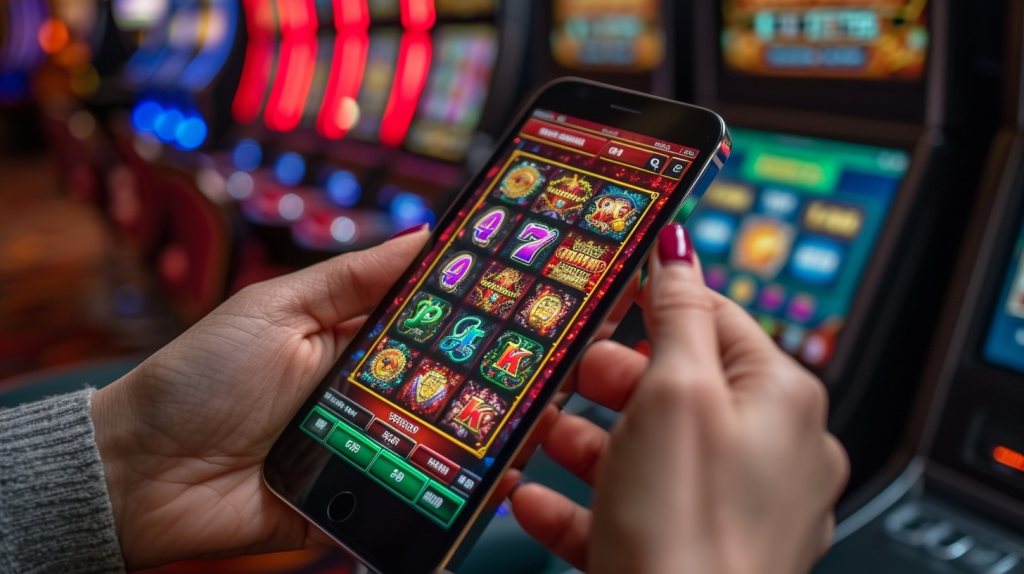The online casino industry stands at an exciting technological crossroads. From its humble beginnings in the mid-1990s to today’s sophisticated gaming platforms, the sector has consistently embraced innovation to deliver increasingly immersive and convenient experiences. As we look toward the horizon, emerging technologies promise to revolutionize virtual gambling in ways that might have seemed like science fiction just a few years ago. This forward-looking examination explores the transformative trends shaping the future of online casinos and how they will redefine digital gambling experiences.
The Immersive Revolution: Virtual and Augmented Reality
Perhaps no technology holds more transformative potential for online casinos than virtual reality (VR) and augmented reality (AR). These immersive technologies are poised to bridge the experience gap between physical and digital gambling environments.
Virtual Reality Casinos
Early VR casino implementations already allow players to:
- Navigate virtual gambling floors
- Interact with dealers and other players through avatars
- Experience three-dimensional slot machines with interactive elements
- Sit at poker tables with spatial awareness of opponents
However, current offerings represent just the beginning. As VR technology advances, we can expect:
- Photorealistic environments replicating famous casino destinations
- Haptic feedback gloves providing tactile sensations when handling chips or cards
- Custom avatar creation with realistic facial expressions and body language
- Social spaces beyond gaming floors for player interaction
- Integration with real-world events like poker tournaments or sports betting
The barriers to widespread VR casino adoption—costly equipment, physical space requirements, and technical complexity—continue to diminish as the technology matures and becomes more accessible.
Augmented Reality Applications
While VR creates entirely new environments, AR overlays digital elements onto the physical world, offering different but equally compelling possibilities:
- Transforming any surface into a casino table through smartphone cameras
- Visualizing statistics and probabilities during gameplay
- Creating mixed-reality poker games with physical cards and digital information
- Enhancing sports betting with real-time data visualization during live events
- Providing interactive tutorials for new players learning game rules
AR’s advantage lies in its lower barrier to entry—most modern smartphones can support basic AR applications without additional equipment.
Blockchain and Cryptocurrency Integration
Blockchain technology and cryptocurrencies are already making significant inroads in the online casino space, addressing longstanding challenges around transparency, transaction efficiency, and global accessibility.
Provably Fair Gaming
The concept of “provably fair” gaming represents a fundamental shift in how game integrity is verified:
- Blockchain-based random number generation allows players to verify each outcome’s fairness
- Smart contracts automatically execute payouts based on transparent conditions
- Immutable ledgers create permanent records of all gameplay transactions
- Decentralized verification eliminates reliance on third-party auditors
These capabilities address one of online gambling’s historical challenges: player trust in the fairness of digital games.
Cryptocurrency Advantages
Beyond provably fair systems, cryptocurrencies offer several advantages for online casinos:
- Near-instantaneous deposits and withdrawals
- Reduced transaction fees compared to traditional banking methods
- Enhanced privacy for players in jurisdictions with gambling restrictions
- Elimination of currency conversion costs for international players
- Protection against chargebacks and payment disputes

As cryptocurrency adoption continues to grow and regulatory frameworks mature, we can expect deeper integration with mainstream gambling platforms, potentially extending to:
- Token-based player loyalty systems with transferable value
- Decentralized casino platforms operated by distributed autonomous organizations
- Player-owned gaming ecosystems where participants share in platform profits
- Cross-platform digital asset use between different gaming environments
Artificial Intelligence Transformation
Artificial intelligence is already reshaping online casinos behind the scenes, but emerging applications will soon become more visible and impactful to the player experience.
Personalized Gaming Experiences
Advanced AI enables highly customized player experiences:
- Dynamic game recommendations based on play history and preferences
- Personalized bonus offers calibrated to individual player behaviors
- Adaptive difficulty levels that maintain optimal challenge and engagement
- Custom interfaces that adjust to player interaction patterns
- Predictive content delivery anticipating player interests
These personalization capabilities aim to increase player satisfaction and retention by creating experiences that evolve with individual preferences.
Responsible Gambling Enhancement
AI shows particular promise for promoting responsible gambling behaviors:
- Pattern recognition to identify potentially problematic play before it becomes harmful
- Customized intervention strategies based on individual player profiles
- Real-time feedback systems encouraging healthy gambling habits
- Predictive analytics to forecast at-risk players for proactive support
- Advanced self-exclusion systems with greater efficacy than current options
These applications represent a shift from reactive to predictive approaches in responsible gambling protection.
AI Opponents and Environments
Beyond backend applications, AI creates new frontiers in gameplay itself:
- Sophisticated AI opponents in poker and other skill-based games
- Dynamic storytelling in narrative-driven gambling experiences
- Voice-activated gaming removing interface barriers
- Emotional intelligence systems adjusting to player mood and engagement
- Advanced computer vision for seamless integration of physical elements

Mobile Evolution and Cross-Platform Integration
Mobile devices have already revolutionized online gambling by making it accessible anywhere, but several emerging trends will further transform the mobile experience.
5G and Edge Computing
The rollout of 5G networks combined with edge computing creates new possibilities:
- Near-zero latency for live dealer games and multiplayer experiences
- Higher quality video streaming without buffering or quality degradation
- Support for compute-intensive applications like VR without battery drain
- Location-based gaming experiences tied to physical environments
- Seamless transitions between devices without gameplay interruption
These technological advances will particularly enhance live dealer games, which benefit significantly from improved connection speeds and reliability.
Cross-Platform Ecosystem Development
The future of online casinos likely transcends individual platforms:
- Unified player accounts across mobile, desktop, VR, and physical casinos
- Seamless game state preservation when switching devices
- Cross-platform tournaments and social features
- Integrated loyalty programs spanning digital and physical properties
- Synchronized progression systems across different gaming environments
This ecosystem approach views player relationships holistically rather than as separate experiences on different platforms.
The Rise of Skill-Based and Social Gaming
Traditional casino games rely primarily on chance, but emerging models incorporate skill elements and social dynamics to appeal to new generations of players.
Skill-Based Gambling
Game designs incorporating demonstrated skill are gaining traction:
- Arcade-style elements integrated into slot gameplay
- Strategy components with meaningful impact on gambling outcomes
- Competitive tournaments where skill determines prize distribution
- Hybrid games blending traditional gambling with esports mechanics
- Progressive skill development systems with persistent player progression
These innovations aim to attract younger demographics who favor active participation over passive chance-based experiences.
Social Casino Evolution
The social elements of gambling continue to develop in digital environments:
- Team-based gambling activities with shared risks and rewards
- Interactive streaming where viewers can participate in gameplay
- Community-driven events and tournaments with spectator components
- User-generated content including custom game variations
- Shared group experiences across geographic boundaries
These social dimensions recreate the communal aspects of physical casinos that early online platforms often lacked.
Regulatory Challenges and Adaptation
The regulatory landscape for online gambling continues to evolve globally, creating both challenges and opportunities for innovation.
Artificial Intelligence Compliance
AI systems are increasingly being deployed for regulatory compliance:
- Automated KYC (Know Your Customer) verification with greater accuracy
- Real-time monitoring for money laundering patterns
- Sophisticated age verification to prevent underage gambling
- Cross-border compliance management for international operators
- Automated reporting systems for regulatory transparency
These applications help operators navigate complex and often conflicting regulatory requirements across jurisdictions.
Regulatory Sandbox Approaches
Some forward-thinking jurisdictions are implementing “sandbox” frameworks:
- Controlled testing environments for innovative gambling products
- Limited licensing for experimental approaches
- Collaborative development of regulations for new technologies
- Risk-based assessment methods for novel gambling formats
- Graduated regulatory frameworks based on scale and risk profile
This approach encourages innovation while maintaining appropriate consumer protections.

Data-Driven Optimization
Advanced data analytics capabilities will continue transforming how online casinos operate and evolve.
Predictive Analytics Applications
Sophisticated data modeling enables:
- Game portfolio optimization based on detailed engagement metrics
- Churn prediction and retention strategy personalization
- Lifetime value forecasting for more efficient player acquisition
- Session pattern recognition to optimize gameplay experiences
- A/B testing at unprecedented scale and granularity
These capabilities allow operators to make evidence-based decisions about everything from game design to marketing strategies.
Player Journey Mapping
Data-driven player journey analysis creates opportunities for experience enhancement:
- Identification of friction points in user experience
- Optimization of conversion paths from registration to deposit
- Personalized onboarding processes for different player segments
- Targeted intervention at critical decision moments
- Long-term engagement planning across player lifecycle stages
Environmental Sustainability Considerations
As digital technologies face increasing scrutiny for their environmental impact, online casinos will need to address sustainability concerns.
Energy-Efficient Computing
Future platforms will likely emphasize:
- Lower energy consumption for blockchain verification methods
- Carbon-neutral server operations
- Optimized code to reduce processing requirements
- Edge computing to reduce data center dependencies
- Transparent reporting on environmental impact
Contrasting with Physical Casinos
Online operators may increasingly highlight their environmental advantages:
- Reduced travel-related carbon emissions
- Lower resource consumption compared to physical properties
- Paperless operations eliminating physical waste
- Smaller overall carbon footprint per player
- Sustainability-focused branding opportunities
Recommended Resources
For those interested in tracking the evolution of online casino technology:
- Gaming industry technology conferences and expositions
- Research publications from gambling regulatory bodies
- Technology innovation reports from major casino software developers
- Academic studies on emerging gambling technologies and their impacts
Conclusion
The future of online casinos will be shaped by the convergence of multiple technological trends, from immersive reality experiences to blockchain transparency, AI personalization, and cross-platform integration. These innovations promise to create gambling experiences that are simultaneously more engaging, accessible, secure, and responsible than current offerings.
While certain technological hurdles and regulatory considerations remain, the trajectory is clear: online casinos are evolving from digital versions of traditional gambling experiences into entirely new forms of entertainment that blur the lines between gambling, gaming, social media, and immersive technology.
For players, these developments offer the prospect of more engaging, fair, and tailored experiences. For operators, they present opportunities to attract new demographics, increase retention, and develop deeper player relationships. And for regulators, they necessitate innovative approaches to ensure consumer protection keeps pace with technological advancement.
As these technologies mature and converge, the online casino of tomorrow may bear little resemblance to today’s platforms—offering instead a seamlessly integrated entertainment experience that adapts to individual preferences while maintaining the essential excitement that makes gambling compelling.
Frequently Asked Questions
How will VR technology change the online casino experience?
VR will transform online casinos from 2D interfaces to immersive environments where players can navigate virtual spaces, interact with dealers and other players through avatars, and experience three-dimensional game elements. As the technology advances, these experiences will become increasingly realistic, potentially including haptic feedback for tactile sensations and photorealistic environments replicating famous casino destinations.
Are cryptocurrency casinos likely to replace traditional payment methods?
Rather than complete replacement, we’ll likely see integration and coexistence. Cryptocurrency offers advantages in transaction speed, cost, and privacy, but traditional payment methods remain more accessible and familiar to many players. The future probably involves hybrid systems where players can choose their preferred payment method from multiple options, with cryptocurrencies gradually gaining market share as adoption increases.
How will artificial intelligence affect fair play in online casinos?
AI will play dual roles in fair play enforcement. For operators, it will enhance security through pattern recognition that identifies suspicious behaviors, collusion, or potential fraud more effectively than current systems. For players, AI-powered tools may help analyze games with skill elements to improve decision-making and identify optimal strategies. Regulatory frameworks will need to establish clear boundaries for acceptable AI use by both parties.

